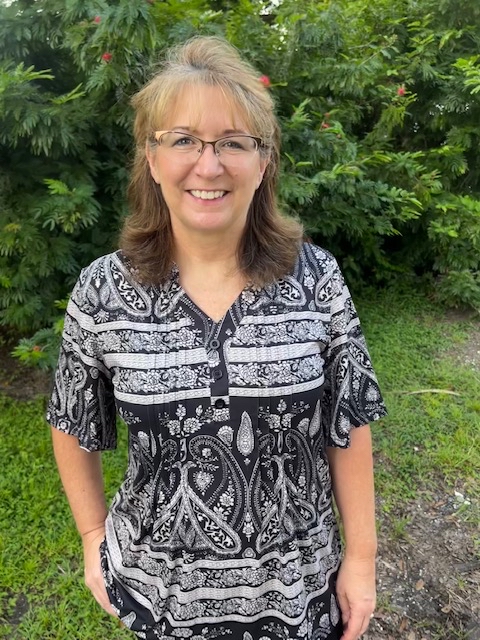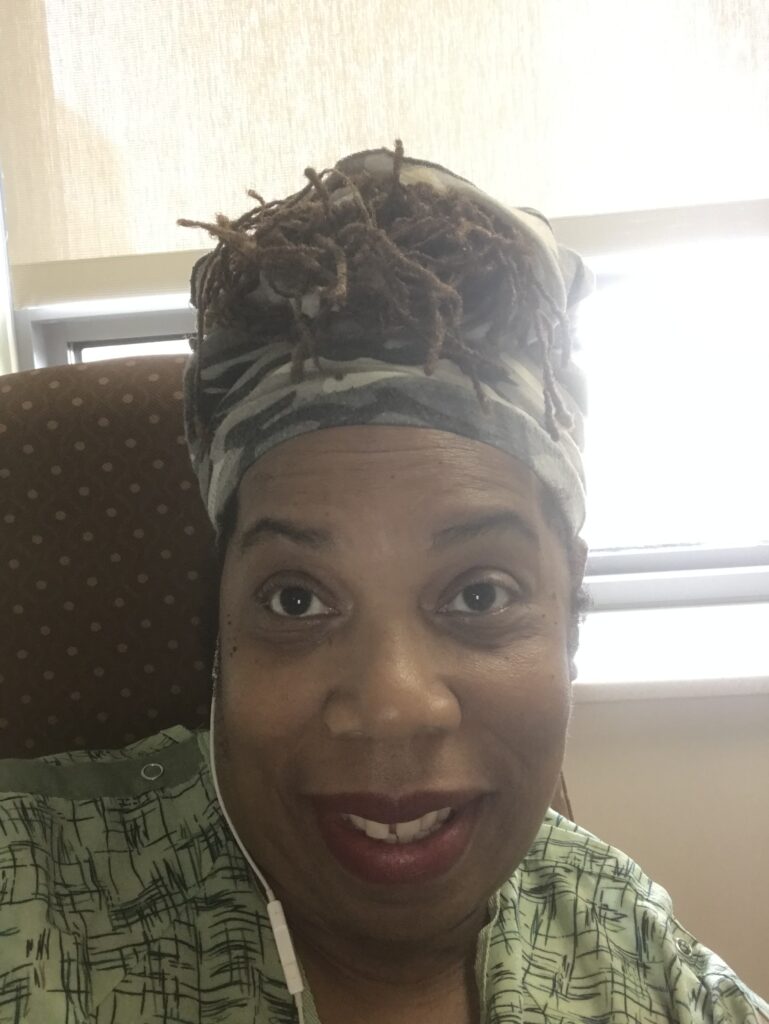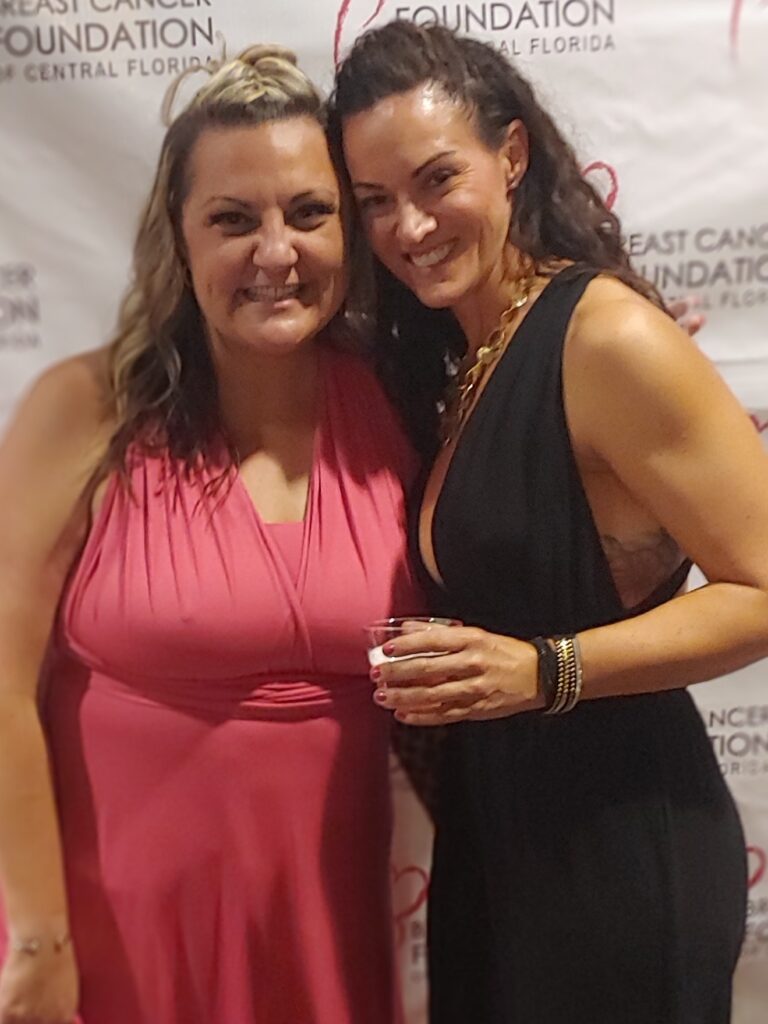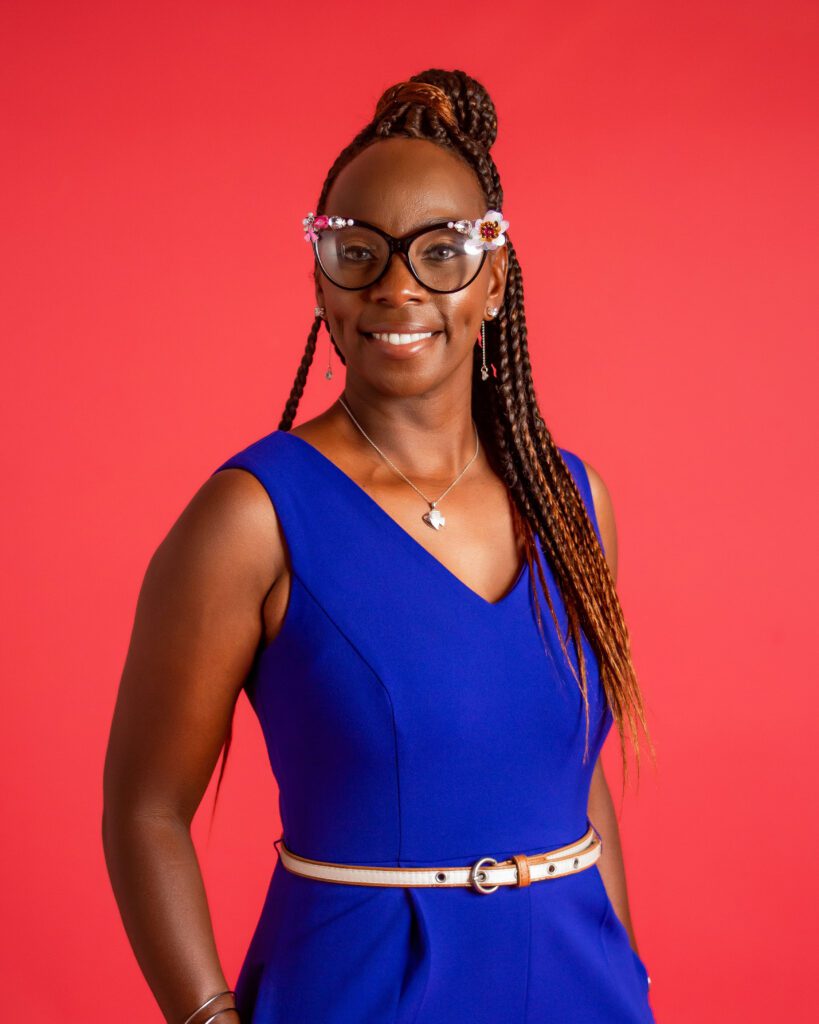Breast Cancer Survivors Share Stories of Perseverance
Breast cancer doesn’t discriminate. It doesn’t care if you’re a mother, daughter, sister, aunt, or sole provider. It doesn’t care if you’re embarking on the best adventure of your life or going through your most trying time. Despite the awareness campaigns and vast education on the topic, the disease rocks the lives of those who are afflicted. Radiating out of the darkness of fear and uncertainty, the voices of patients share tales of courage, faith, life lessons, and perspective. Central Florida Health News spoke with four survivors who were gracious enough to share their journeys with us.
Vickie Ballin: A New Lease on Life

by PAUL CATALA
Vickie Ballin’s strongest and most direct advice to other women: “Get your yearly mammogram; it can definitely save your life.”
It was Ballin’s annual visit with her obstetrician-gynecologist in September 2020 when what looked like “pepper dropped on a paper” showed up on a follow-up mammogram at Winter Haven Women’s Hospital. That discovery led to a biopsy by Dr. Robert Gabordi at St. Joseph’s Women’s Hospital in Tampa a month later and the confirmation of two areas of breast cancer on her left breast.
“It was complete terror once I was told. As soon as they said I need to go for a biopsy, your heart stops,” says Ballin, 55, a 30-year registered nurse and quality coordinator at Winter Haven Hospital. “I just sat there and just cried in the parking lot. My family, friends — everyone was in complete shock”
The Bartow resident, who is married and has one grown son, says there was no history of cancer in her family, she’s never smoked, and she maintains a healthy lifestyle, so her diagnosis caught her by surprise.
Nonetheless, Ballin says once she was diagnosed, she wanted to face it head-on and fight to defeat her cancer. With both lesions in her left breast, she decided to have a bilateral mastectomy with reconstruction in November 2020.
“I wanted zero percent chance of ever getting breast cancer again, so that’s why I chose bilateral mastectomy,” she says.
A second surgery was performed the following July.
The surgeries showed no cancer had gone into her lymph nodes, but there was some concern as Ballin’s cancer was the fast-growing human epidermal growth factor receptor 2 (HER2). That led to 12 weeks of chemotherapy and 13 more doses of targeted therapy for cancer, which lasted from December 2020 to December 2021.
“The day after my surgery, they said ‘Congratulations, you are cancer free.’ It’s an amazing thing to hear. What I was blessed with was no cancer was found in my lymph nodes,” she says. “The way they presented with the chemo and the targeted therapy, well, is like you’re cancer free and this like your insurance policy.”
If not insurance, but reassurance, part of Ballin’s recovery she says was based on support from family and co-workers, despite going through her surgery at the height of the covid pandemic.
“The nurses (at Winter Haven Hospital infusion center) were amazing; I’d never go anywhere else for something like this,” she adds.
Ballin, who says her life continues to become “more normal,” recommends any women reading her story to get yearly mammograms, even if they have no symptoms.
“I was very lucky that it was found so early. The odds of it coming back are very slim,” she says. “It’s pretty amazing. I’m so blessed. It was a tough time, but I feel it’s over and I’m recovering well and getting more energy every day and can do a little bit more and more each day. It’s like having a new lease on life; I’m very, very blessed.”
Lesa Brown: ‘I Wanted to Live‘

by PAUL CATALA
As a probation officer with the Florida Department of Corrections, Alethea “Lesa” Brown has to sometimes contend with contentious moments.
But one of Brown’s most confrontational life situations didn’t evolve from her career, but rather from a second lumpectomy done in January 2020. Although she had no diagnosis prior to her lumpectomies, that second procedure to remove abnormal tissue from her breast led to a diagnosis of breast cancer.
By March 2, 2020, Brown had her right breast removed. Fifteen days later, discharge prompted the removal of her left breast. She spent three months in recovery, and now, the 60-year-old Seffner resident says she was able to “easily adjust” to life post-mastectomy.
“To be honest, when I got the words ‘You have cancer,’ I thought, ‘Okay, let’s do this.’ There was no hesitation; I wanted to live,” says Brown.
The four-hour operation at Lakeland Regional Health Medical Center was for lobular carcinoma in situ — the presence of abnormal cells inside a milk duct in the breast — considered the earliest form of breast cancer. She was also diagnosed with follicular cancer in the left breast.
Brown, who gets cancer-screening follow-ups every six months, says throughout her procedures she always “went with the flow.”
“Whatever I was asked to do, I did – some hurt, some didn’t,” she says.
In addition to support from her nurses and physicians, Brown says it has been her strong faith in God that has helped her through trials and tribulations along the way.
“There’s God that brought me to this and he brought me through this,” she adds.
Brown, who now wears prosthetic breasts, joins other survivors in the push for monthly self-examinations and yearly mammograms.
“Don’t be afraid to seek out confirmation for cancer. If you see something, say something.”
Ashley Page: Perspective & Priorities

by KRISTEN GUEVARA
It was Thanksgiving of 2020 in the midst of the pandemic that Ashley Page’s life was turned upside down. While on vacation with her family in Arizona, the Lakeland resident received a phone call from her doctor with news that she had stage 2 invasive ductal carcinoma, or breast cancer. In total disbelief, Page decided to go on with her week as if it never happened. Denial is often the first stage in processing grief.
Three months prior, Page discovered a lump in her right breast. Believing it was just tissue, she didn’t think much of it. Her boyfriend and her best friend encouraged her to get examined. Stubborn at first, Page finally gave in and had a mammogram and a biopsy. The suspicious lump in her breast turned out to be a cancerous tumor.
Even though the doctor believed the cancer was going to grow slowly, the tumor doubled in size increasing to stage 3 cancer from Thanksgiving to January 5. Page, a natural “fix-it” type personality, struggled with this diagnosis because it was something she couldn’t fix. As much as she wanted to, she couldn’t plan what would happen next. Cancer is something no one controls, and nobody knows what tomorrow will bring.
For Page, “tomorrow” brought a lumpectomy, 36 rounds of radiation, and eight Accupoints. During surgery, the doctors discovered the tumor was deeper than expected. With only six treatments of radiation left, the radiation began to burn Page’s skin, posing the risk of infection and pausing the treatments. As much as Page wanted to be done with the treatments, there was no rushing the process.
The radiation treatments drained her of her energy and appetite. With the help of friends and the Breast Cancer Foundation of Central Florida, Page was able to stay home and heal after her surgery. A month and a half later, she was back at work after her morning radiation treatments.
Page has now been in remission for two years. She takes medication and gets a shot to stop the production of estrogen and will continue to do so for the next five to eight years to protect from recurrence. As a result, she is now experiencing menopause at age 37, and she’s unable to have children. This makes her even more thankful that she will soon be a stepmom of three with her now fiance.
Page uses her experience with breast cancer to give back to others facing the same battle. She is a strong supporter of the Breast Cancer Foundation of Central Florida and spends most of her time with family and helping others through their journey. She credits the support of her family, friends, the foundation, co-workers, and church for getting her through those hard days of battling breast cancer.
“Breast cancer was truly the scariest thing that ever happened to me,” she says, “but I learned a life lesson: I can’t plan my life in a daily planner. I now focus on what is important — my kids, my family, saying no when I need to, saying yes when I want to, helping people more, and being kinder.”
Aisha Wright: Unwavering Faith

by TERESA SCHIFFER
Aisha Wright’s journey began with an unusual pang while she prepared for bed one night in 2018.
“I was getting ready to lay down and I felt a pain, a sharp pain, just one, and that made me just kind of feel,” Wright recalls of her detection of an unusual mass. “Mine was a little bit different; it wasn’t down in my breast area, it was up in my chest wall, so it was a little higher than right at my breast, more at the top of my breast. Initially that night I did not know what was going on, so I went to the emergency room and I was actually misdiagnosed. They didn’t find it that night. The physician checked and did not feel the lump then. That just did not sit well with me. I really wanted someone to do a scan or give me a mammogram or something.”
The Winter Haven resident had no family history of breast cancer, but she scheduled an appointment with her doctor right away. After feeling the lump, he sent Wright to get the mammogram.”
Learning she had cancer at age 40 was a shock, she says. She was fearful but soon found the strength to persevere.
“I knew that I was a fighter, and I just believed what God said,” Wright explains. “I prayed, and He told me it didn’t come to kill me, and so I stood on that. I stood on the word of God, on what God had told me during my prayer time.”
Her faith and her family were pillars of support that bolstered her through the ensuing battle.
“It’s like your world just stops,” Wright recounts. “I pretty much did everything for my family, not only for my husband but also my sisters and my brothers. So for me, my first thought was, ‘Oh my gosh, I’m not going to be able to help them.’ ”
Wright’s mother had passed from ovarian cancer in 2012, so Wright had assumed the matriarchal duties of helping her siblings. The last thing she wanted was to cause them concern.
Her family was deeply concerned but supportive as Wright began treatment. While her husband worked, her siblings accompanied her to 12 rounds of chemotherapy over six months, followed by 16 rounds of radiation treatments over seven weeks.
The treatments were exhausting. She lost weight, she lost her hair, but Wright never lost faith. The experience was physically draining, but not so spiritually. She leaned on her faith and sought counseling with her pastor.
Wright committed to minimizing how her struggle affected others. She arranged her schedule so treatments would not interfere with her work as director of a nonprofit organization providing assistance to the needy. Upon completing chemotherapy, she released a video revealing what she had been enduring.
“For me, that was freeing,” Wright says. “At that point, I was really able to embrace it. I no longer wore wigs, I walked around with my bald head. And because of what I did, people realized that I was still being of service to other people, even in the midst of my own trials.”
Wright also wrote a book about her journey, titled “My PINK Is Powerful,” and published it on Amazon.
